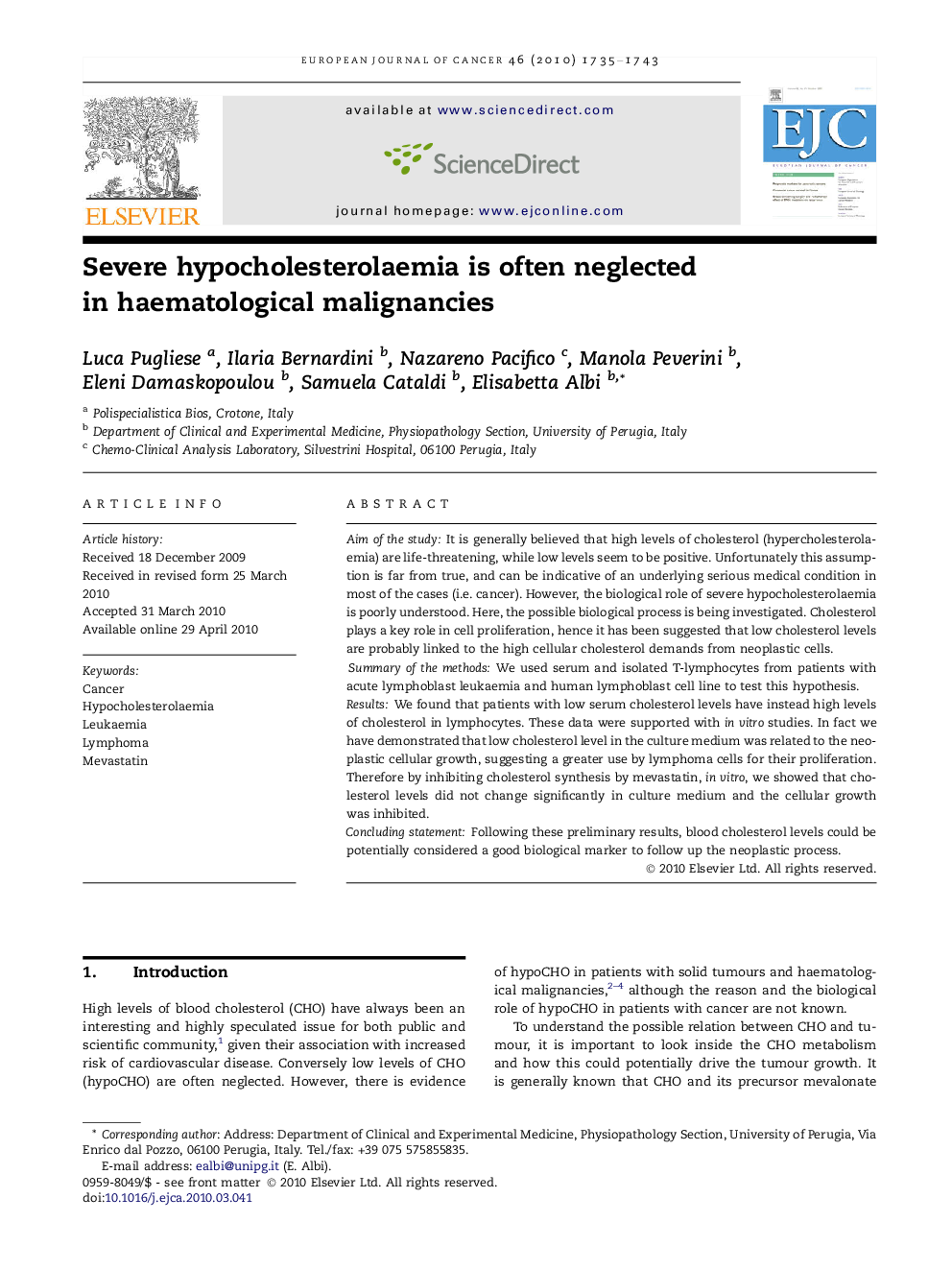| Article ID | Journal | Published Year | Pages | File Type |
|---|---|---|---|---|
| 2123414 | European Journal of Cancer | 2010 | 9 Pages |
Aim of the studyIt is generally believed that high levels of cholesterol (hypercholesterolaemia) are life-threatening, while low levels seem to be positive. Unfortunately this assumption is far from true, and can be indicative of an underlying serious medical condition in most of the cases (i.e. cancer). However, the biological role of severe hypocholesterolaemia is poorly understood. Here, the possible biological process is being investigated. Cholesterol plays a key role in cell proliferation, hence it has been suggested that low cholesterol levels are probably linked to the high cellular cholesterol demands from neoplastic cells.Summary of the methodsWe used serum and isolated T-lymphocytes from patients with acute lymphoblast leukaemia and human lymphoblast cell line to test this hypothesis.ResultsWe found that patients with low serum cholesterol levels have instead high levels of cholesterol in lymphocytes. These data were supported with in vitro studies. In fact we have demonstrated that low cholesterol level in the culture medium was related to the neoplastic cellular growth, suggesting a greater use by lymphoma cells for their proliferation. Therefore by inhibiting cholesterol synthesis by mevastatin, in vitro, we showed that cholesterol levels did not change significantly in culture medium and the cellular growth was inhibited.Concluding statementFollowing these preliminary results, blood cholesterol levels could be potentially considered a good biological marker to follow up the neoplastic process.
